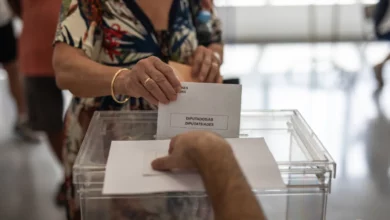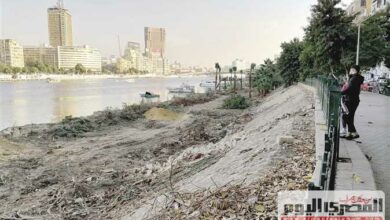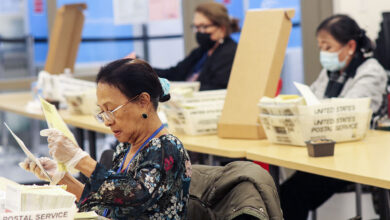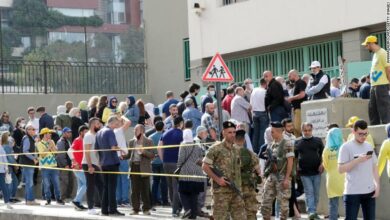Another poll on Egyptians' favorite nominees for the presidential election slated for 23 and 24 May has again put former Arab League chief Amr Moussa on top, with 39 percent of participants' votes.
According to Al-Ahram Center for Political and Strategic Studies' sixth consecutive poll, former Muslim Brotherhood member Abdel Moneim Abouel Fotouh came second with 24.5 percent of participants' votes, followed by former Prime Minister Ahmed Shafiq with 17.2 percent.
As for Mohamed Morsy, the Brotherhood candidate gained support, climbing to fourth place in this poll with 7 percent of votes. For the first time, he edges past leftist Hamdeen Sabbahi, who acquired 6.7 percent of votes.
None of the 13 candidates in the first post-Mubarak presidential race is expected to win outright, setting the stage for a second round of voting in June, although Moussa and his Islamist rivals are viewed as front-runners.
Compared to last week's standings, the recent poll marks obvious progress by both Shafiq and Morsy, with Shafiq moving from 11.9 percent to 17.2 percent and Morsy from 3.6 percent to 7 percent. The votes garnered by the rest of the candidates dipped variably.
The center's polls have so far have revealed citizens' eagerness to take part in the voting process, with the rate of participation varying between 90 to 95 percent over the last weeks. They also indicate an ongoing decrease in the number of voters who are undecided on who they would vote for.
Moussa, 75, enjoys a large number of supporters in Upper Egypt, Alexandria and Daqahlia — all densely populated regions.
Since last month, Moussa has intensified his electoral campaign in Upper Egypt and the Delta, visiting town and villages while painting himself as the only candidate with the stature and experience to lead Egypt.
Abouel Fotouh on the other hand draws from support in Port Said, where he has 45.2 percent of participants' support, and Suez, where he has 38.1 percent. Both are governorates with small populations where Moussa receives only limited support.
Last month, Abouel Fotouh received a major push after the Salafi-led Nour Party announced its endorsement of him.
Shafiq, who served as prime minister under Hosni Mubarak, has a support base in Monufiya, with the backing of 26.2 percent of poll participants. In Gharbiya, he has 21.9 percent. But he sees the lowest rates of support in Aswan (3.4 percent), Beni Suef (5.3 percent) and Alexandria (5.6 percent).
Morsy, despite the step forward he made in the recent poll, is still far from finding a niche in any governorate. In Daqahlia — which provides the largest rate of support for Morsy — the Brotherhood nominee only has 8.5 percent of votes, followed by Aswan, also at 8.5 percent, and Fayoum at 7 percent.
The center noted that shifting support from one candidate to another would remain pivotal to the electoral process. A nominee's biggest challenge is to convince more voters of his qualifications compared to other competitors.
But voters — or at least a portion of them — do not seem to be shifting much between candidates with different ideologies. Liberal reformist candidates, who include Moussa and Shafiq, still enjoy the support of more than 50 percent of voters, while Islamist runners Abouel Fotouh, Morsy and Mohamed Selim al-Awa enjoy roughly 35 percent of votes.
The poll, financed by Al-Ahram press organization, covered the period between 28 April and 1 May and was conducted through personal interviews with 1,200 participants.
The findings represent the majority of Egyptian governorates, which were selected by the Central Authority for Public Mobilization and Statistics. The margin of error stood at 3 percent.




